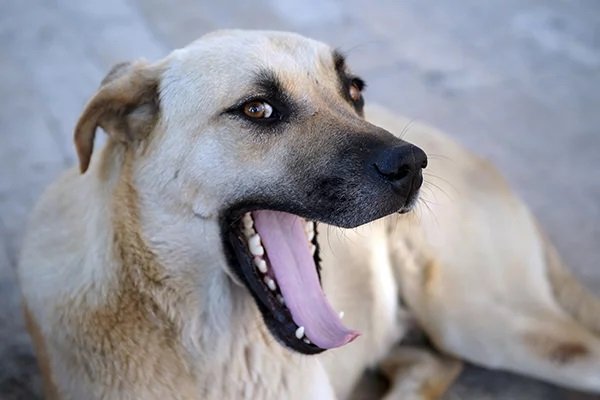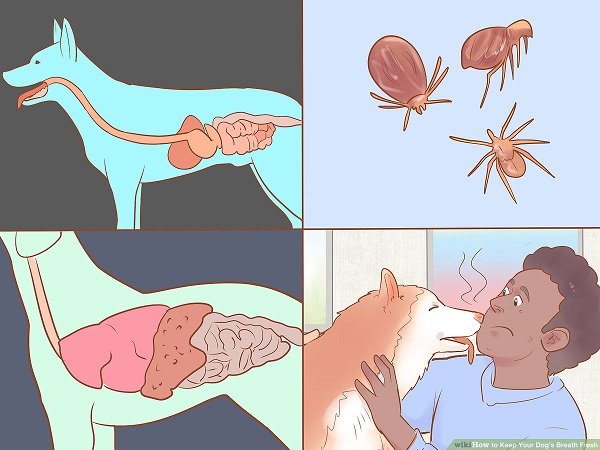Millions of people worldwide enjoy having a furry, feathered, or even scaled companion share their homes. For many, pets are so much more than that. In this blog, we inform you about doggie breath and what to do about it.
They are like members of the family. And more and more people are adopting a four-legged companion, with dogs remaining a firm favorite among Americans.
Approximately 90.5 million homes in the US, representing 70% of the country, owned a pet as of 2022. Of these, 69 million have dogs, while 45.3 million have cats.
Changing lifestyles, more pet-friendly infrastructure, and the loneliness brought by the pandemic also accelerated pet ownership. Only 56% of households owned a pet in 1988, compared to 67% in 2019.
With all of these people taking care of more and more pups of all ages and breeds, there is one obstacle that every dog owner must face and overcome: doggie breath.
There are many myths and misconceptions about the notoriously bad breath of our canine companions. But why does puppy breath stink at times? Is it normal? What can be done to prevent it? Let’s find out!
Are you looking for Pet Care Services in Delhi NCR, Then download Monkoodog PetCare App.
Why Dogs Get Bad Breath

Although ‘doggy breath’ has come to be seen as the norm for many pet owners, it is in fact something that should not be overlooked or taken lightly. Many pet owners are surprised to learn that dogs actually should have neutral-smelling breath.
The reality is that, like humans, foul-smelling breath is likely to be due to oral disease, poor dental care, tooth and gum damage, or underlying illness. It is normal for your dog’s breath to smell more than others- after eating, for example.
However, regularly occurring foul breath is something you should bring up with your veterinarian as soon as possible. In the meantime, let’s look at five things you can do right now to help your pup get better-smelling breath by covering up odors and eliminating them at their source!
Tips to Help Minimize and Even Prevent Doggie Breath

1. Use Appropriate Chew Toys to Protect Teeth
Chew toys can be useful for more than redirecting your new puppy’s destructive energy to something other than your shoes and furniture.
Some toys are designed to help clean your dog’s teeth and keep plaque from building up on the gums.
Toys that are durable yet soft can work much like chewing gum does for people and helps keep food from sticking to the teeth and gums, and keep your dog’s breath smelling better.
Being smart about the toys you offer your pup can help reign in that bad breath by ensuring they are not chewing on something all day long that can give them bad breath.
2. Give Bones and Treats to Keep Teeth and Gums Clean
The treats you give your dog can also contribute to the way their breath smells day in and day out. Some chew bones are made with ingredients that can cause bad breath when your dog chews on their favorite bone all day long.
You should look for vet-recommended dog treats Dubai treats and snacks that can actually help fight foul breath. Many treats are designed the help clean teeth and move plaque and food particles off teeth and gums.
This is a simple and effective way to start fighting against puppy breath every day while rewarding your pup simultaneously.
3. Feed Natural-Based Foods to Reduce Odor and Bacteria
There are many reasons why more and more dog owners are making the move to more naturally sourced pet food. Aside from being overall healthier and safer for your pup, natural foods are also less likely to cause bad breath.
With fewer preservatives, dyes, artificial flavors, and additives, your dog’s food will not be as likely to cause tooth and gum disease that often leads to chronic bad breath.
Foods that feature real meat, vegetables, and grains will ensure your pup is happy and healthy and that bad breath doesn’t get in the way of playtime with family members.
4. Brush Your Furry Friend’s Teeth Regularly, and Visit the Vet to Catch Issues
Just as people need to take care of their teeth and gums with regular brushing and dental checkups, your furry companion also needs some outside help. Dental care is a big part of fighting bad puppy breath.
You should brush your dog’s teeth several times a week, if not recommended to do so daily by your veterinarian.
It would help if you also kept all vet visits so they can check for early warning signs of tooth and gum issues.
The sooner issues are detected, the more efficient treatments will be and the less likely they are to get out of hand and lead to bad breath.
5. Consider Remedies and Supplements Like CBD
Another option that can help fight doggie breath is the use of vet-approved natural extracts and supplements.
Many herbal remedies, including CBD oils and similar products, can help protect your pet’s overall health.
Working with your vet and determining the best products and regimens can help your dog have a happy and healthy life. And you and your family can benefit from more play time without the dreaded doggie breath getting in the way.
It can really be a win-win situation and is something worth discussing with your veterinary care team.
Fighting back against bad puppy breath is possible. It is not something you have to just sit back and accept or deal with. In fact, you should be doing the exact opposite!
So, if your pup has frequent bad breath, bring it up at the next visit to the vet and see what they recommend. You have nothing to lose but the bad doggie breath and so much to gain!





